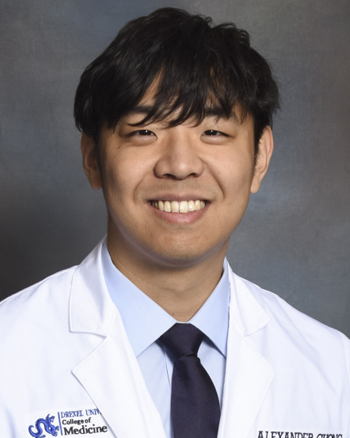35 Years of Bridging the Gaps: Student Perspectives on Community, Care and Connection
This year marks the 35th anniversary of Bridging the Gaps, a pioneering program that has empowered thousands of medical students to serve and learn from underserved communities across Pennsylvania. To celebrate this milestone, Drexel University College of Medicine joined fellow Bridging the Gaps consortium members in honoring decades of community partnership, interdisciplinary collaboration and student-driven public health initiatives. The anniversary event showcased the impact of Bridging the Gaps through a symposium that brought together alumni, faculty and community leaders.
The College of Medicine has been a proud participant in Bridging the Gaps since its inception, integrating the program into its broader mission of community engagement and health equity. Each summer, Drexel MD students work alongside local organizations to address pressing social determinants of health — from housing insecurity and food access to environmental justice and youth development. Through Bridging the Gaps, students gain firsthand experience in community-based care. The following student reflection offers a glimpse into what it’s like volunteering with Bridging the Gaps.
Bridging the Gaps Reflection by Alexander Chong

Leaving my family home to begin medical school in Philadelphia, I longed to establish new roots. My love for the outdoors, shaped by fall foliage and summer hikes in upstate New York, had always grounded me. When I discovered Bridging the Gaps, I saw an opportunity to plant those roots in my soil. From the first conversation with my site preceptor at Clean Air Council, I felt a natural kinship with their mission of promoting environmental access and quality.
On my first day at Cobb’s Creek trail, I stepped through an unassuming gate near the busy 63rd Street Station and found myself transported. At one moment, I was surrounded by the cacophony of traffic and buzz of commuters; the next, enveloped in a canopy of trees, shielded by the creek’s steady current. This trail, hidden in plain sight, revealed a sanctuary where residents walked together through the blistering summer heat. As I traced its winding path, I felt myself rooting more deeply in a new space in Philadelphia, unlocking a part of the city I had not known, yet which had always belonged to its people.
Bridging the Gaps also helped me nurture new roots through its seminars where pioneers spoke passionately about healing their communities. I listened to leaders in street medicine confronting the opioid crisis in Kensington and artists transforming weathered neighborhoods through murals. Other leaders illuminated local issues of gun violence, mental health, and food insecurity—struggles woven into the daily lives of my new neighbors. Their work reminded me that roots are not only personal but communal, binding individuals to the shared soil of their city.
Throughout my project, I came to know Cobb’s Creek not just as a trail, but as a living community. I bought the biggest watermelon from a fruit seller’s truck along the trail, learned the history of the bridge at Cobb’s Creek that once divided racially segregated neighborhoods, and joined in the mission to chronicle and preserve this vital space. Each experience deepened my connection, as if my roots were intertwining with those who had long called this place home.
The culmination of these experiences bloomed at the Bridging the Gaps symposium, as I looked around at the gardens, projects, and initiatives blossoming across Philadelphia, each one rooted in the care of people determined to strengthen their city. My site preceptor noted that we were the only environmental health station and immediately leapt into action and began building new bridges to elevate the role of environmental health in community wellbeing. In that moment, I understood more fully: Roots are not only about where we come from, but what we choose to nurture.
As its name suggests, Philadelphia, the City of Brotherly Love, has shown me that the bridges we build and the roots we grow are what give strength to that love. Bridging the Gaps did more than connect me to a project; it gave me new soil in which to grow.
Contact Information
Drexel University College of Medicine
Office of Admissions
60 N. 36th Street, Philadelphia, PA 19104
215.991.8202
Back to Top